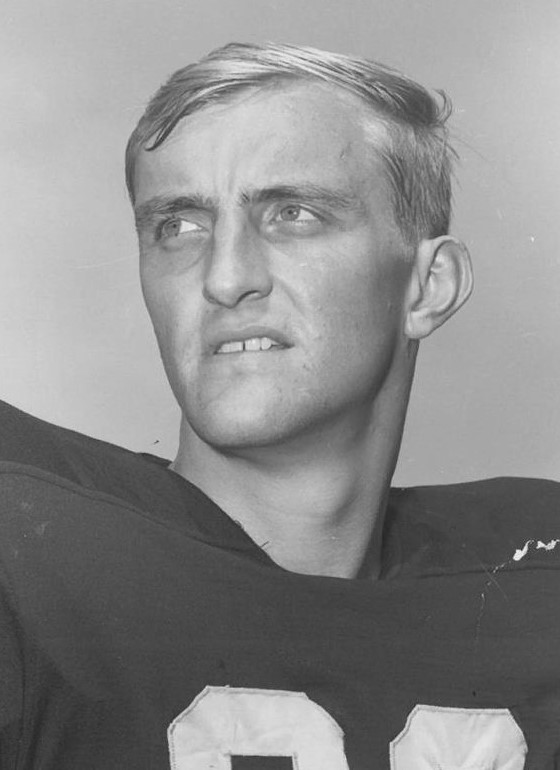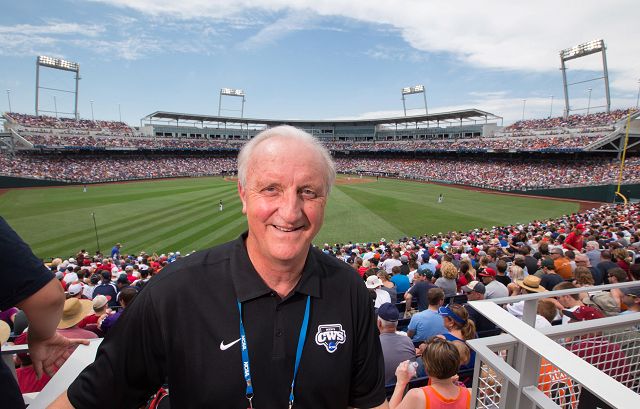Poppe didn’t get beat much on the football field, but once his career was over, Poppe didn’t really know what he wanted to do next. He was stumped.
Poppe decided he wanted to go to law school, but that didn’t last very long. He decided to pursue an MBA at Mizzou, and get back to football. He approached Coach Dan Devine, and was put on staff as a grad assistant, where he earned a little over $50 a month.
“I was very thankful for the position,” Poppe said. “But I asked him for a little more than 50 bucks a month. He said he couldn’t give me more, but pointed me toward the athletic department. I was then given a job in administration. I had the most complicated title, and did the least amount of work. I always thought that was pretty funny.”
It may have just started as a way to make a little more money, but Poppe became a hot commodity. After a number of years, Poppe was told to interview with the NCAA. Though he did not get the job on the first go, Poppe did eventually, and moved away from his Mizzou home for the first time since he enrolled in college.
Poppe told himself he would stay with the NCAA for three years, as he had other career aspirations in mind. However, that all changed in 1987, when another unique opportunity emerged. That year, Poppe was put in charge of the College World Series, and it was career- and life-altering.
“My time with the College World Series was really enjoyable,” said Poppe. “I always loved baseball, but I could never hit a curveball. We really developed a special relationship with the people of Omaha. It became a sort of family event for me. I have many fond memories tied to it.”
The years flew by, but Poppe can still remember down to the minute how much time he spent with the NCAA. It wasn’t because the work was hard or boring, but because it was all so memorable.
After he retired in 2013, Poppe had time to reflect on his career. For someone who had accomplished so much as an individual, Poppe often credits his university, his teammates and his peers for his success.
“You know, I have had more time to think than some of these younger inductees,” Poppe said, laughing. “It was a big deal to be named to the All-Big 8 team. Getting the game ball against Michigan after having six interceptions was one of the greatest accomplishments I had on the football field. But the thing I am most proud of after all these years is the relationship I have with the guys from the ’69 team. We still get together and stay in touch. We were actually inducted into the Missouri State Hall of Fame in 2016. It was great to be selected as a whole team. In my position, I can remember my personal stuff. But being a part of a team, representing a team 40 years later, that’s amazing.”
As his induction into the Mizzou Hall of Fame nears, Poppe made clear how thankful he was for Mizzou, and how honored he was to be a thread in the Black and Gold story.
“It is nice to get affirmation that I did something good along the way,” Poppe said. “I always thought of Mizzou as a part of my family. And now they’re telling me ‘you did ok son’. It is pretty remarkable a small-town farm boy could make this journey. But I couldn’t have done it without my Mizzou family.”
From his stellar play, to his stint with Mizzou Athletics, all the way through his illustrious 39-year career with the NCAA, one thing about Dennis Poppe is clear: he made the most of every scholarship he ever got, and the world of college sports and the University of Missouri are both better because of it.
The 2017 Mizzou Athletics Hall of Fame Class will be inducted during a ceremony on Friday, Oct. 20, at the Hampton Inn & Suites. Tickets are on sale now here.

